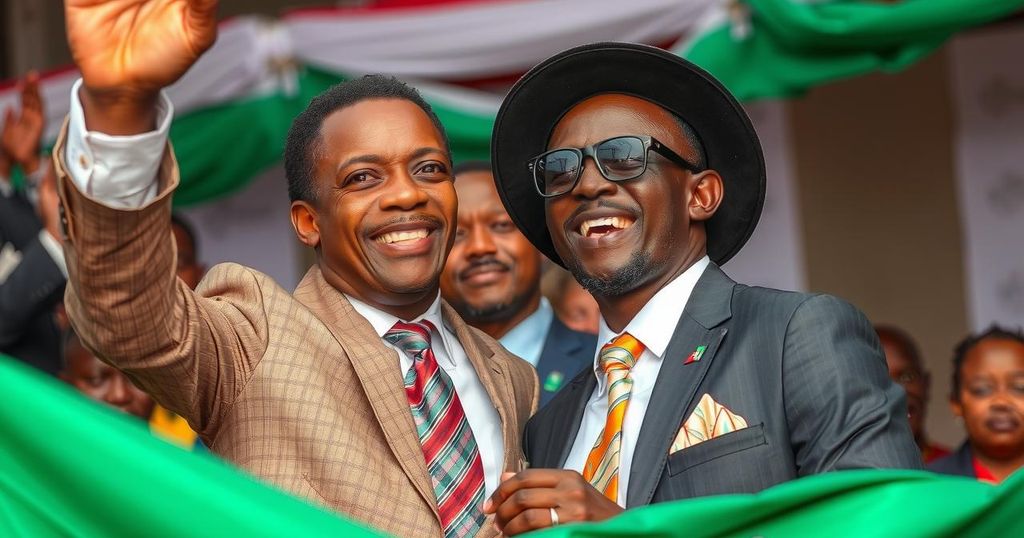Duma Boko leads Botswana’s Umbrella for Democratic Change to historic victory as the first opposition party in power, winning 35 out of 61 seats, amid rising desire for social reform after decades of BDP rule. However, Quran critics argue UDC may prioritize pro-business agendas over true social change, raising doubts about its commitment to addressing inequality and economic disparities.
The recent electoral victory of the Umbrella for Democratic Change (UDC) marks a historic shift in Botswana’s political landscape, as it becomes the first opposition party to gain power. Duma Boko, the UDC leader, was sworn in as president on November 1, following a significant parliamentary win in which the UDC captured 35 out of 61 seats, drastically reducing the Botswana Democratic Party’s (BDP) representation. This democratic transition reflects a populace weary of nearly six decades of BDP governance, seeking social reforms amid rising economic disparities exacerbated by external pressures, including NATO’s conflict with Russia and IMF economic policies.
However, the UDC’s portrayal as a beacon for social change is misleading. Their campaign rhetoric emphasized job creation and social initiatives, yet the UDC fundamentally aligns with pro-business agendas, potentially sidelining genuine reform in favor of elite interests. The new administration under Boko, who has connections to the legal and corporate elite, has signaled intentions to foster business-friendly policies, including deregulation and seeking foreign direct investment in sectors beyond diamonds.
Furthermore, Boko’s administration’s immediate outreach to De Beers, which controls significant diamond production in Botswana, underscores a commitment to preserving corporate alliances over prioritizing the welfare of the masses. Despite promises of economic diversification and increased healthcare access, the actual implementation of these policies remains questionable given the UDC’s leanings toward capitalist practices.
To understand the implications of these changes in Botswana, one must consider the broader regional context of declining support for traditional parties due to mounting socioeconomic pressures. Similar electoral shifts are observable in South Africa and Namibia, where ruling parties have faced backlash from disillusioned citizens. Botswana’s new leadership may appear transformative, yet the realities of class interests and regional trends suggest caution against celebrating the UDC as a representative of the working populace.
In conclusion, while Botswana experiences a new political chapter with the UDC, the implications of its governance strategies are yet to be seen. The party’s pro-business stance and initial focus on maintaining corporate partnerships could thwart a true reform agenda, perpetuating the existing inequality rather than alleviating it. An organized, independent struggle representing the broader working class remains essential for achieving genuine change. The narratives surrounding opposition parties like the UDC must be critically evaluated to recognize economic realities and the need for progressive alternatives that prioritize the working class.
The Umbrella for Democratic Change (UDC) has recently emerged victorious in Botswana’s parliamentary elections, marking a revolutionary shift in a nation previously dominated by the Botswana Democratic Party (BDP) since independence in 1966. The UDC’s gaining of power reflects widespread dissatisfaction with the long-standing political status quo, characterized by social and economic inequalities that have persisted for decades. The backdrop of rising poverty, youth unemployment, and demands for social change, fueled by significant regional political shifts, offers insight into the complexities of Botswana’s new political dynamics. Amidst external pressures from global economic conditions and austerity policies, the UDC’s governance will be closely scrutinized as it navigates the challenges of reform in a heavily established corporate-dominated landscape.
The election of the UDC in Botswana symbolizes a significant change in the country’s political paradigm, yet it also raises critical questions about its capacity to deliver substantial social reform. Given its pro-business orientation and historical ties to the elite, there is skepticism regarding the true intent behind its promises. For meaningful progress toward equality and social justice, a robust, independent movement advocating for the working class is necessary, underscoring the need to move beyond superficial political changes and prioritize substantive reforms that challenge the entrenched interests of capital.
Original Source: www.wsws.org






